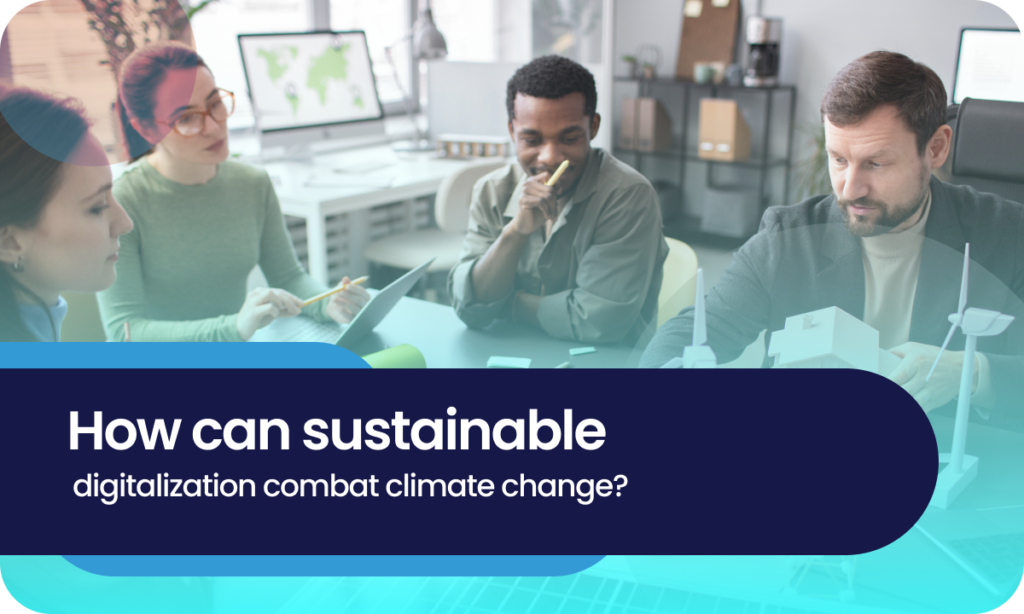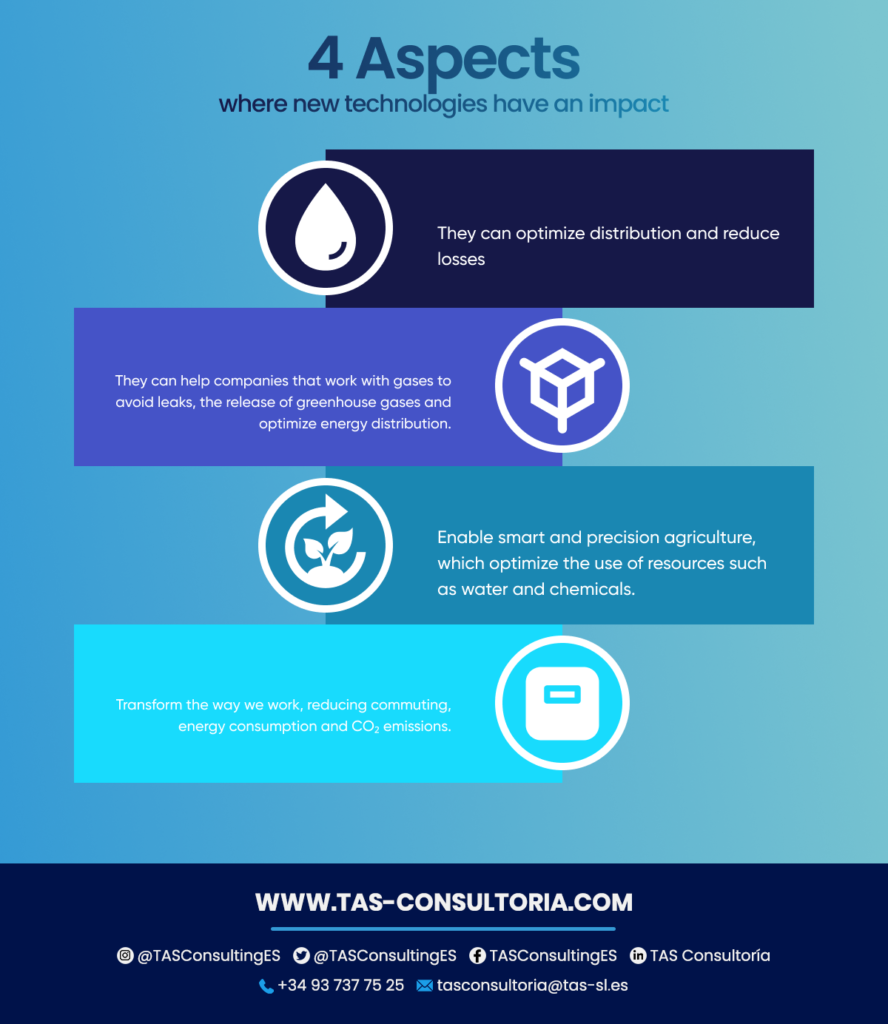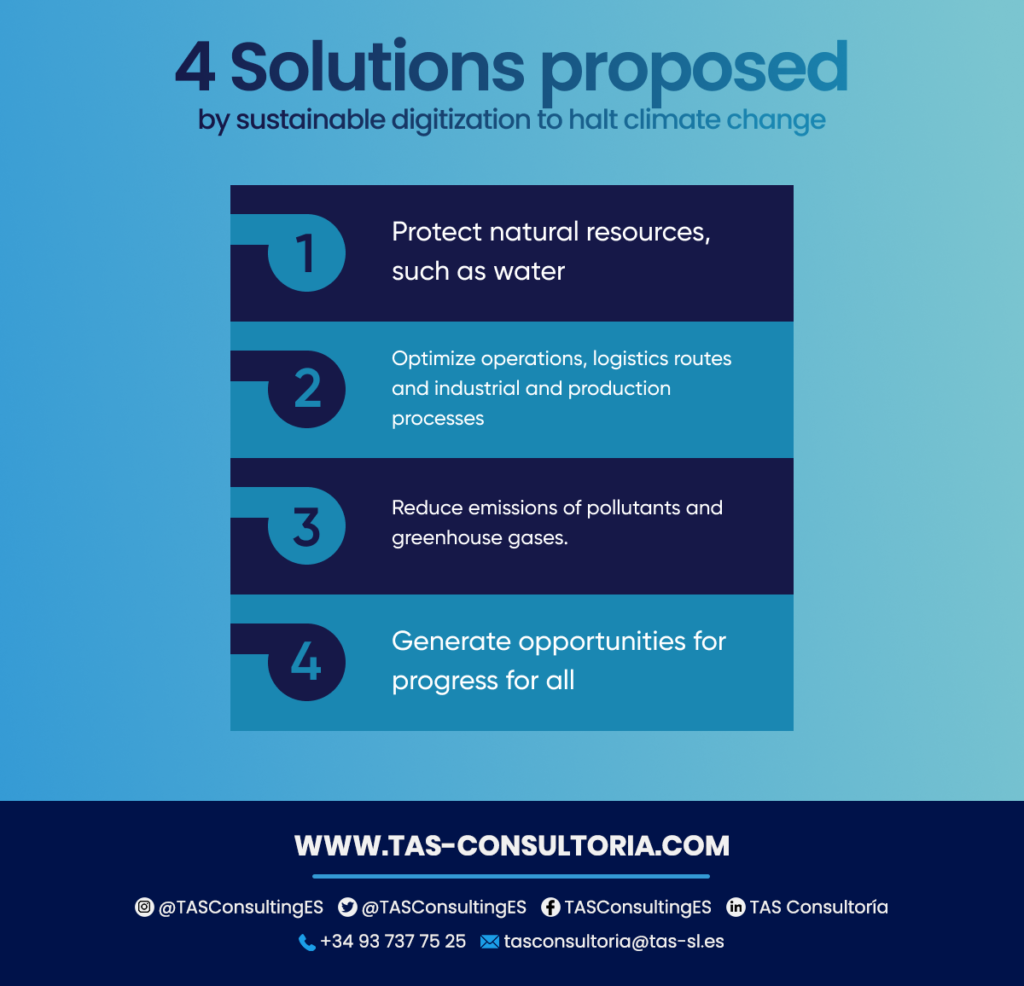
Currently, sustainable digitalization is presented as the solution proposed by new technologies. This in order to combat climate change and mitigate the consequences that this major problem generates. The new technological trends are committed to the decarbonization of the economy, the use of renewable energies and the protection of natural resources. In this article we tell you what sustainable digitization is and how to integrate it into your business successfully, here we go!
What is sustainable digitization?
Sustainable digitization is the application of digital technologies and the use of data to improve environmental, social and economic sustainability. It is an approach that seeks to use technology responsibly and conscious of its impact on the environment and society.
This is because every technological innovation is designed to reduce resource consumption. One example is the arrival of the 5G network, which is up to 90% more efficient than 4G generation in terms of energy requirements.
You may also be interested in: Impact of health tech today
Why is it important to achieve sustainable digitization?
Sustainable digitization seeks to respond to the needs of today’s world and provide solutions. Making its participation in the fight against climate change is important for its ability to:
- Help reduce the carbon footprint by optimizing processes and reducing energy consumption.
- Improve business efficiency and productivity, which can benefit both the environment and the economy.
- Encourage innovation and the creation of new, more sustainable business models.
That said, the importance of sustainable digitalization lies in its power to reduce the carbon footprint of companies. Also, in its contribution to the protection of the environment and society in general.
Why is it important to combat climate change?
You ask yourself: why is it so important to fight climate change? Just think of the myriad impacts on human health, the economy and the environment. Rising global temperatures cause droughts, floods and rising sea levels.
As a consequence, agriculture, food production and housing for millions of people are affected. It also increases the temperature of the oceans, which reduces the availability of oxygen and affects marine life.
In terms of health, climate change increases the occurrence of respiratory and cardiovascular diseases. As well as the spread of animal-borne diseases.
Climate change also poses a threat to the economy, as it affects food production, energy and infrastructure. It can also reduce natural resources and increase the demand for drinking water. This leads to social and economic conflicts.
You may also be interested in: International telework regulation
4 cases where new technologies have an impact.
The use of new digital technologies has the potential to reduce global emissions by 15% to 35% in the coming years. This type of technology allows the control of various sectors. These include the industrial, energy and utilities sectors as follows:

3 technological solutions that promote the fight against climate change
One of the main challenges in the fight against climate change is the reduction of greenhouse gases. These are the gases that trap heat in the atmosphere and contribute to global warming.
To achieve this, it is necessary to implement technological solutions that promote clean energy and energy efficiency, such as:
- Renewable energies
By this we mean solar, wind and hydroelectric power. Solar panels and wind turbines are increasingly present in many parts of the world. This is a result of increased investment in renewable energy.
- Energy efficiency
Reducing energy consumption can also be key. Smart homes and energy-efficient buildings can significantly reduce energy consumption and gas emissions.
- Transportation technology
Transportation technology is also in the spotlight. Electric vehicles are becoming increasingly popular. So much so that numerous automakers have announced plans to phase out internal combustion engines.
Also, public transportation technologies, such as autonomous vehicles, can improve transportation efficiency and reduce emissions.
In conclusion, the implementation of technological solutions that promote renewable energy, energy efficiency and efficient transportation is essential to reduce greenhouse gas emissions and address climate change.
4 solutions proposed by sustainable digitization to stop climate change.
Sustainable digitalization is a necessity that requires collaboration between different sectors. This will result in numerous solutions to this major problem, climate change.
For this reason, here are 4 proposed solutions:

The aim of these solutions is to achieve a successful transition to a more sustainable and climate-resilient future.
You may also be interested in: The road to digitization of the public sector in Spain
To learn more about sustainable digitalization and how it can help combat climate change, contact us at TAS Consulting through our email tasconsultoria@taqs-sl.es.
Remember that we have an excellent team ready to provide you with the information you need and much more. Also, you will be able to schedule your free consultation.




Your email address will not be published .
Required fields are marked with *